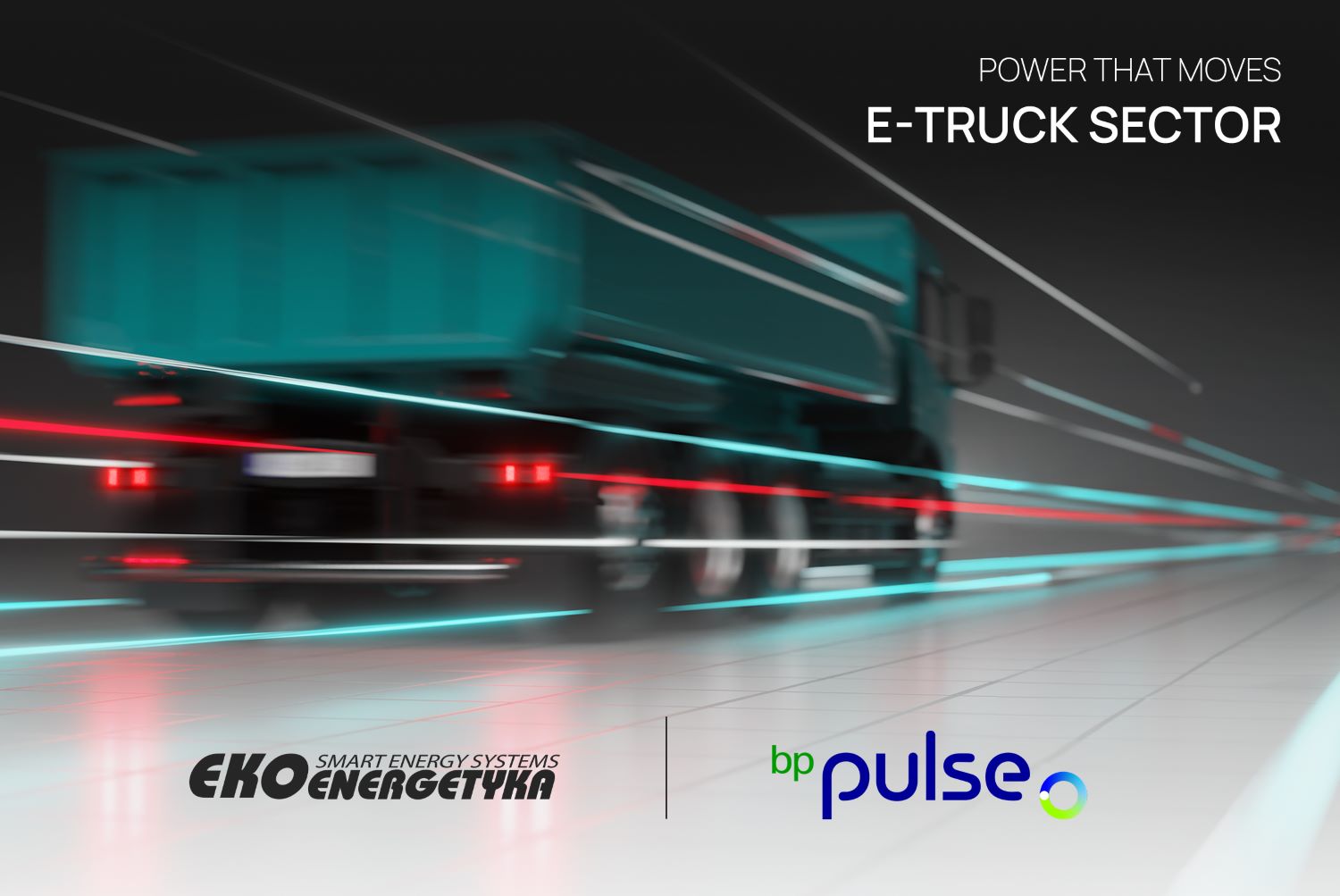bp pulse and Ekoenergetyka are joining forces to address one of the most critical challenges in electrifying heavy-duty vehicles: providing reliable, efficient overnight charging solutions for e-trucks. This collaboration aims to ensure seamless operations for fleet operators by meeting the growing demand for scalable charging infrastructure in the heavy-duty transport sector. Leveraging their combined expertise, the two companies are committed to supporting the transition to cleaner transportation while optimizing operations for logistics companies.
Electric trucks primarily charge in three scenarios, each needing specific infrastructure.
The first is destination charging at logistics centers during unloading or loading. The second is highway charging, aligned with regulatory rest breaks of 30-45 minutes at truck stops. The third is overnight charging, the most common scenario, where trucks charge for 6-8 hours at depots or public stops with lower power.
“Organizing overnight charging for large e-truck fleets, especially in public parking areas along the TEN-T network, is a significant challenge for the electrification of heavy-duty transport. While charging infrastructure is steadily growing, the current availability remains a challenge for some fleet operators. Together with bp pulse, we are committed to helping to address these gaps by providing efficient, high-power solutions,” said Maciej Wojeński, Co-founder and Member of the Supervisory Board of Ekoenergetyka-Polska S.A.
Nigel Head, European EV Truck Director, bp pulse, said: "Collaborating with Ekoenergetyka on e-truck overnight charging solutions is another step forward in our plans to help meet the needs of UK and European HGV operators transitioning their fleets to EVs. Developing safe, reliable, space efficient and scalable overnight e-truck solutions will form an important cornerstone of bp’s future e-truck customer and network offer across Europe."
The collaboration with bp pulse is another project that Ecoenergy is particularly proud of, believing that the joint solutions provided will be the ones that the market needs and that will support the transition to electric trucks.
Read more in the press release:
